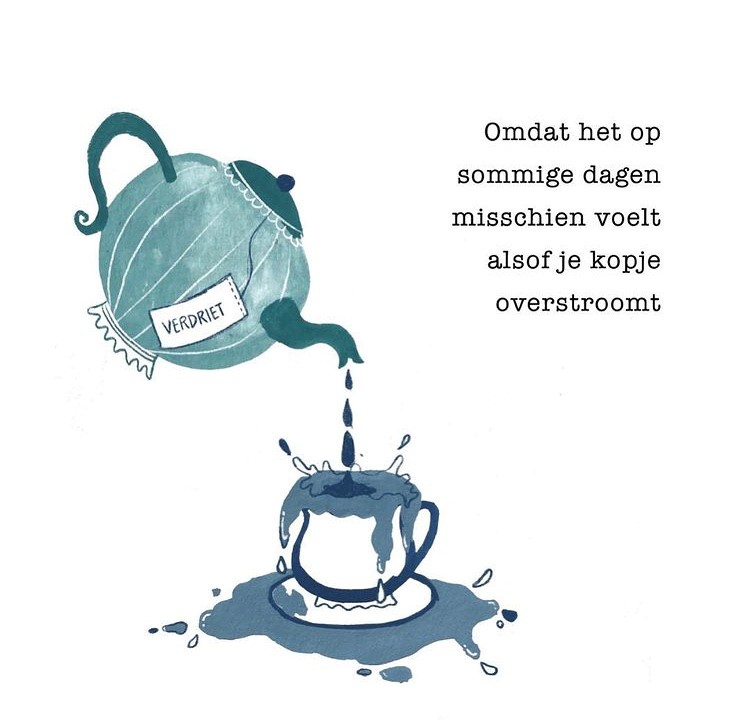The art of listening
”We should listen more often and better, and pay more attention to sorrow.”
Dirk de Wachter
As a coach at Siggie, students often tell me how supportive it is when someone genuinely listens. And just like Dirk de Wachter, I believe that we can mean a lot to each other by listening sincerely and giving space to feelings of sorrow and grief. After all, difficulties also create connection.
But what do you say to someone who is grieving? Psychologist Manu Kreise says: “It’s not about what you have to say. People with grief have only one need: that someone listens, listens and listens to them.’ So how exactly does that work, truly listening to someone? And how can you become a better listener yourself?
Ask questions
Often we tend to associate the other person’s story with our own experience. You probably recognize the following situation: the friend who says, “Oh, I understand exactly how you feel. I have {…}.’ Sociologist Charles Derber calls this tendency to move a conversation towards ourselves Conversational Narcisism. Your brain tries to absorb the information that others tell us by using a relevant event in our memory to give it context. Very useful, because that way we can understand what the other means. But there’s a downside: we use our own feelings to determine how someone else is feeling. So how bad I feel about your heartbreak depends on how bad I felt when I was heartbroken.
So that’s not a good way to deal with sorrow, but what is? According to Headlee (see this Tedtalk) it helps to act like a professional interviewer. Keep asking questions and keep your focus on the other person; don’t shift the conversation to yourself. For example, ask: ‘Oh I’m so sorry to hear that, what happened?’ and continue to ask questions about what the other person is saying.
So, can you never share your own experience in response to someone else? Of course you can. In some situations it can be helpful to share something about your own experience, perhaps it will help the other person. Always make sure you check if sharing your experience is welcome. Vraag bijvoorbeeld: ‘Jeetje wat naar, wat is er gebeurd?’ en vraag door op wat de ander vertelt.
Take your time
Good listening is often limited by people being in a rush, so make sure you take the time to really listen to the other person. AIf you spent the whole evening talking about one situation and what is does to your conversational-partner, let it be. Do you want to share something yourself? Be patient and wait until the next meeting.
Don’t judge
In order to listen carefully, you can leave out your own frame of reference and all associated (pre)judgments as much as possible. So show interest and try to empathize and connect with the frame of reference of the other person. A question that can help you: what does the situation mean for where they stand in their life?
Don’t look for a solution
Working towards a solution stands in the way of good listening. Often, out of discomfort with difficult topics, we prefer to find a concrete solution as quickly as possible. Problem solved! But that’s not how life works. In addition, the other person is often not looking for a solution at all, but simply wants to be heard. Another reason to stop looking for a solution: with bigger life themes, such as loss, there is often no solution. Then it’s even more important to give space to grief and to make the other person feel that it is okay not to feel okay.

Is your cup overflowing, do you need someone to listen to you or do you run into something else? Siggie is also happy to help you during the summer months! Siggie helpt je ook graag verder tijdens de zomermaanden!

